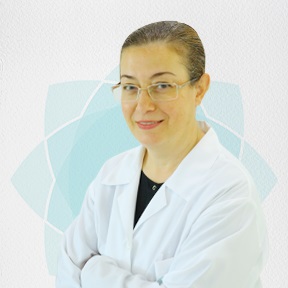
Dr. Suat Günsel University of Kyrenia Hospital Gynaecology and Obstetrics Specialist. Asst. Prof. Dr. Tijen Ataçağ clarified important statements about menopause which is an important turning point in a woman’s life:
What is Menopause and when does it start?
Women may not be aware of when and how their monthly period will disappear. A woman without a 12-month period is experiencing menopause. Menopause can be seen in the 40s and 50s. The mean age of menopause is 51. At this point, the production of oestrogen reduces. There will be no more egg release from the ovaries.
What are the stages and symptoms of Menopause?
For many women, the stages of menopause (perimenopause, menopause and post-menopause) are a mystery until it actually happens. Every woman can go through these phases differently.
Perimenopause; oestrogen and progesterone are beginning to decrease, leading to menopause. It can start in the mid-40s and usually lasts 4 years. It is difficult to know the starting point. Irregular periods are usually the first sign. You may become pregnant during this period. If pregnancy is not desired, protection should be used. During this period, depending on the fluctuation of oestrogen, periods may be prolonged or shortened. Reduction or increase in the amount may be observed. Along with these changes in the menstrual cycle, there may be emotional and psychological changes, including anxiety, depression, and forgetfulness. There are a wide range of symptoms that vary according to each woman during menopause. Hot flashes are common which may vary in frequency and duration. It can affect sleep patterns and may cause chronic sleep deprivation, fatigue or confusion. It may also cause vaginal dryness, decreased sexual desire, anxiety, depression, weight gain.
What should women expect during post-menopause period?
In the post-menopausal period, symptoms such as hot flashes may slowly decrease. During this period, women are at increased risk of osteoporosis and heart disease due to the decrease in oestrogen. Skin changes occur. Postmenopausal skin is more sensitive and tends to tear and bruise easily. It becomes drier and also prone to health problems such as eczema. In conclusion, I would like to add that, according to recent research, antidepressants are prescribed to one third of the patients who visit doctors during menopause. This aggravates the patients’ symptoms and affects negatively their self-confidence.